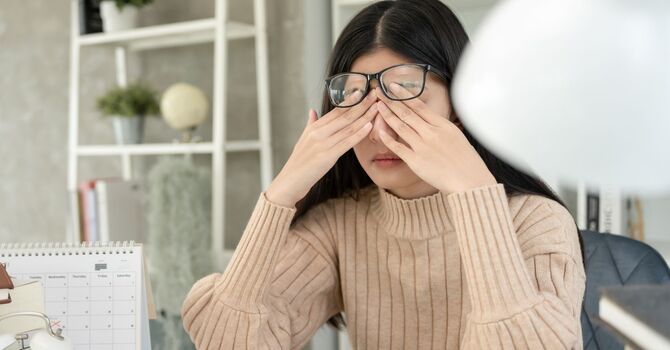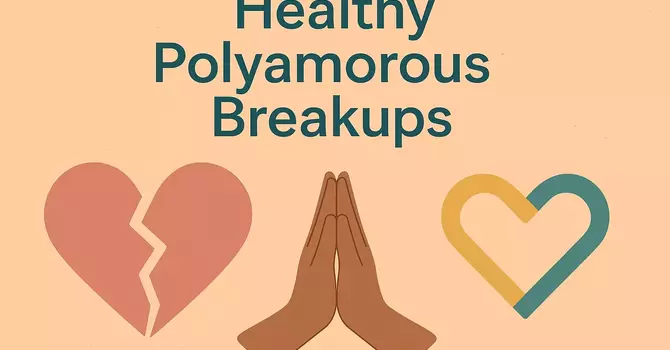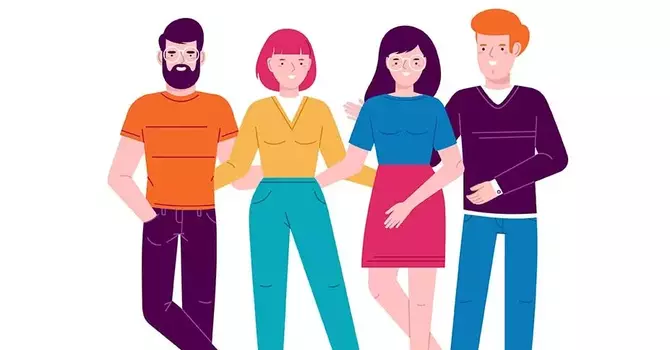
Every chime and notification could be the start of a new romance, and the possibilities are endless, but are there psychological effects of online dating – particularly among LGBTQIA+ people? Unfortunately, the answer is yes, there can be. While there are some undeniable benefits that have come from the rise of online dating – apps and sites increasingly make it easy for users to specify their gender identities and orientations – there have been some signs of a potential toll on our mental health.
If you’re a member of the LGBTQIA+ community, chances are you’re no stranger to online dating. A 2022 Pew Research Center survey found that more than half of lesbian, gay, and bisexual Americans had used a dating site or app – 51% – and 24% of those who were partnered said they had met their partner through online dating. That’s well above the 28% of straight Americans who had used a dating site or app.
We’ve previously shared tips on how to navigate online dating as a queer person, which can come in handy if you’re a new or old user of dating apps and sites. But before you get started with creating your profiles and sifting through online profiles, or continuing to roll the dice and look for love online, let’s explore some of the psychological effects of online dating on LGBTQIA+ people to look out for.
Frequent Rejection and Social Anxiety
Online dating makes it more convenient and accessible to meet lots of people, which is great – but it comes with a potential downside, too. To really make the most out of online dating or dating apps, you have to put yourself out there: Pictures, details about yourself like your age, height, interests, jobs, hobbies, and sexual preferences, to name just a few. That means you also have to be able to handle rejection – sometimes, a lot of rejection – because not everyone is going to be into you, and vice versa.
Another problem is potential exposure to some toxic or hateful encounters or profiles. Discriminatory terms for a group of people that someone doesn’t like, or requiring someone to be “clean” or “disease free” can alienate many people who are living with a disease, are all too common on apps and sites.
Even successful online dating – making a match or setting a date – can bring about its own problem of social anxiety. Meeting new people isn’t easy for everyone, and even if you can carry on a good chat online, managing small talk and first introductions and body language is a challenge to pull off in the real world. This, too, requires being able to handle the potential downfalls of online dating, and find a way to work through rejection and anxiety to continue your pursuit. If you want to put yourself out there, you need the self-esteem to know you deserve to find what you’re looking for.
Emotional Burnout After Long-Term Use
Even those with a healthy self-esteem and approach to online dating can suffer emotional burnout from this platform, eventually. Stories abound about people who encountered less-than-desired results from putting themselves out there online.
Take, for example, this New York Times article from 2022 about 28-year-old Abby. Fed up after 8 years online, finding only thankless swiping and monotonous first introductions but no long-term relationship, she told the newspaper that was felt “burned out,” adding that she was considering hiring a matchmaker for $4,500. “It really is almost like this part-time job,” she said.
Emotional Pressure and Manipulation
Not all relationships are healthy, and even new online relationships can take a turn in a hurry. During her interview with the New York Times, Abby told the reporter she only wanted to be identified by her first name because she had experienced harassment from a previous match. She also said she felt pressured to have sex with other matches.
That lines up with the results of a 2020 Pew Research Center survey, when 37% of online daters reported continuing to be contacted by someone after they said they weren’t interested. Additionally, 35% said they were sent unwanted and sexually explicit images, texts, and messages.
A Focus on Hookups, Not Long-Term Relationships
Here’s another of the long list of potential psychological effects of online dating on the LGBTQIA+ community: Not finding other users looking for the same kind of long-term relationship or partnership.
In a 2023 review of 28 health professionals in British Columbia who worked with young LGBTQIA+ people, respondents said they found gay dating apps increased access to sex – and that meant sexual encounters became less emotionally engaging and meaningful, and more transactional. If someone is looking for love, it can seem like they’re all alone in a sea of location-based hookup apps and NSA profiles.
Still, the review pointed out it’s not all bad – increased access to sex on gay apps also could make young queer people’s sexuality more pleasurable. Health professionals said young people found these apps gave them a sense of freedom to explore their sexuality and find compatible sexual partners, such as for those exploring polyamory. The prevalence of these apps also has the potential for people to find a sense of community and connection beyond sex, and maybe even a new way to make friends as an adult, according to the review.
Overcoming the Psychological Effects of Online Dating
Now that we know about some of the psychological risks of online dating and how this convenient, popular communication option can affect our mental health, it’s important to understand what we can do to mitigate or minimize these risks.
First, it’s important to build up your self-esteem. While you’ll likely find matches sooner than you maybe even imagined, you’ll also have to be able to overcome rejections and poor connections. Trust in yourself, and carefully consider why you’re using online dating. Knowing what you are doing – and why you’re doing it – will help you trust in your ability to find what you’re looking for.
It’s also crucial to move things at the pace you want. Don’t let someone pressure you into meeting if you don’t feel the same, and it’s OK if you want to take it slow. The other person may not agree, but that’s OK. Still, don’t drag things out forever – the goal should be to meet someone, eventually, and it’s better to get through a first meeting and see if there are sparks than to never act on a potential match at all.
Lastly, remember that it’s OK to hit pause on the whole online dating thing, whenever you want, and for any reason. If you’re not feeling into it, there’s no requirement that you sift through profiles and messages or devote your time and energy to something you’re not enjoying. Online dating should be fun, not a drag.
And feel free to reach out for help when you need it. Help is available, no matter what you’re struggling with, and it’s essential to prioritize our mental health. If you’re struggling with online dating, a mental health disorder, or relationship problems, such as emotional abuse and manipulation in Dominant/submissive relationships, look for an educated, understanding professional who can help. At Inclusive Therapy Group, our therapists are ready to work with you, offering convenient and accessible telehealth services to help you discuss your struggles and gain new tools and resources to build a better future. Get started today – contact us online, or call 954-281-2565. We’re here for you.
https://inclusivetherapygroup.com/blog/the-psychological-effects-of-online-dating-on-lgbtqia-people



